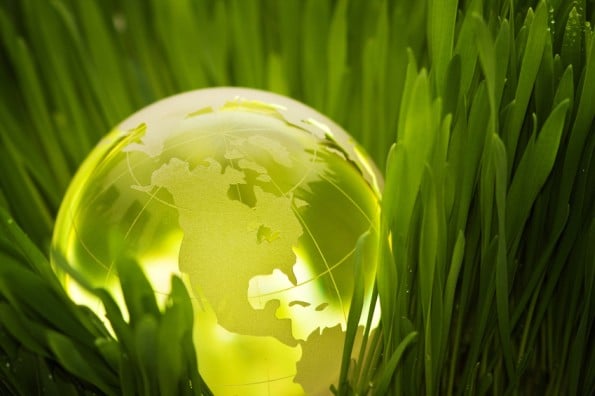Why EU starch potatoes and EU potato starch are sustainable
Brussels, February 2015 - Joint statement of STARCH EUROPE and CESPU.
Growing starch potatoes and the processing to potato starch in the EU provide a partial response to climate change, territorial and food security challenges:
- Starch potatoes produce more starch per hectare than any other crop. Considering this effectiveness and the long growing season, starch potatoes have a positive carbon footprint.
- Starch potatoes are a valuable contribution to the bio-diversity in the crop rotation in agriculture, a new provision that becomes mandatory as from 1 January 2015 under the new Common Agricultural Policy (CAP). Because starch potatoes help maintain the land in a healthy condition, growing starch potatoes every 3-4 years improves the soil conditions.
- Starch potato farmers comply with all EU legislation: environmental law, nitrates, land management, water use, cross-compliance and greening measures under the new CAP.
- Current production techniques in EU’s starch potato sector adhere the principals of Integrated Pest Management. Farmer limit the use of operating resources, such as fertilisers and pesticides, to what is strictly necessary
- Starch potatoes are often grown in areas, where opportunities for alternative crops are few (For example, over the last few years, China has strongly promoted starch potatoes in certain areas). Thus, starch potatoes are an important source of income for farming and maintain employment in those rural areas of the EU
- Starch potatoes help to reach territorial balance through extension of the arable land via an optimal use of less favourable agricultural soils with a crop with a long growing season.
- Potato starch companies have a direct and close link with 15.000 of their growers. Farmers are historical local partners and/or cooperatives who produce exclusively in Europe. This ensures a high added value along the chain
- Every harvest is fully processed into potato starch and valuable co-products. Raw potato waste as well as fibres and protein are directed to animal feed or digested to biogas. With efficient processing techniques, food losses as well as waste are avoided or reduced in the whole potato processing chain.
From a customer's perspective, potato starch has:
- Specific applications in food products thanks to its high purity, viscosity, clear solutions and neutral flavour, e.g. in glass noodles, dairy, meat, bakery products.
- Starch potato farmers comply with all EU legislation: environmental law, nitrates, land management, water use, cross-compliance and greening measures under the new CAP.
- Current production techniques in EU’s starch potato sector adhere the principals of Integrated Pest Management. Farmer limit the use of operating resources, such as fertilisers and pesticides, to what is strictly necessary
- Starch potatoes are often grown in areas, where opportunities for alternative crops are few (For example, over the last few years, China has strongly promoted starch potatoes in certain areas). Thus, starch potatoes are an important source of income for farming and maintain employment in those rural areas of the EU
Starch Europe Avenue des Arts 43 B-1040 Brussels - Tel + 32 2 289 67 60 -
Fax + 32 2 289 67 60 - BE 0878.908.981 - E-mail info@starch.eu - www.starch.eu
CESPU Committee of the European Starch Potato Producers' Unions, c/o Union der Deutschen kartoffelenschaft e.V. (UNIKA) Schumannstrasse 5.D - 10117 Berlin - Tel + 49 30 657 993 - 83 - Fax + 49 30 657 993 - 85 - E-mail cespu@unika-ev.de
Link : Joint Starch Europe/CESPU position paper on potato starch sustainability

